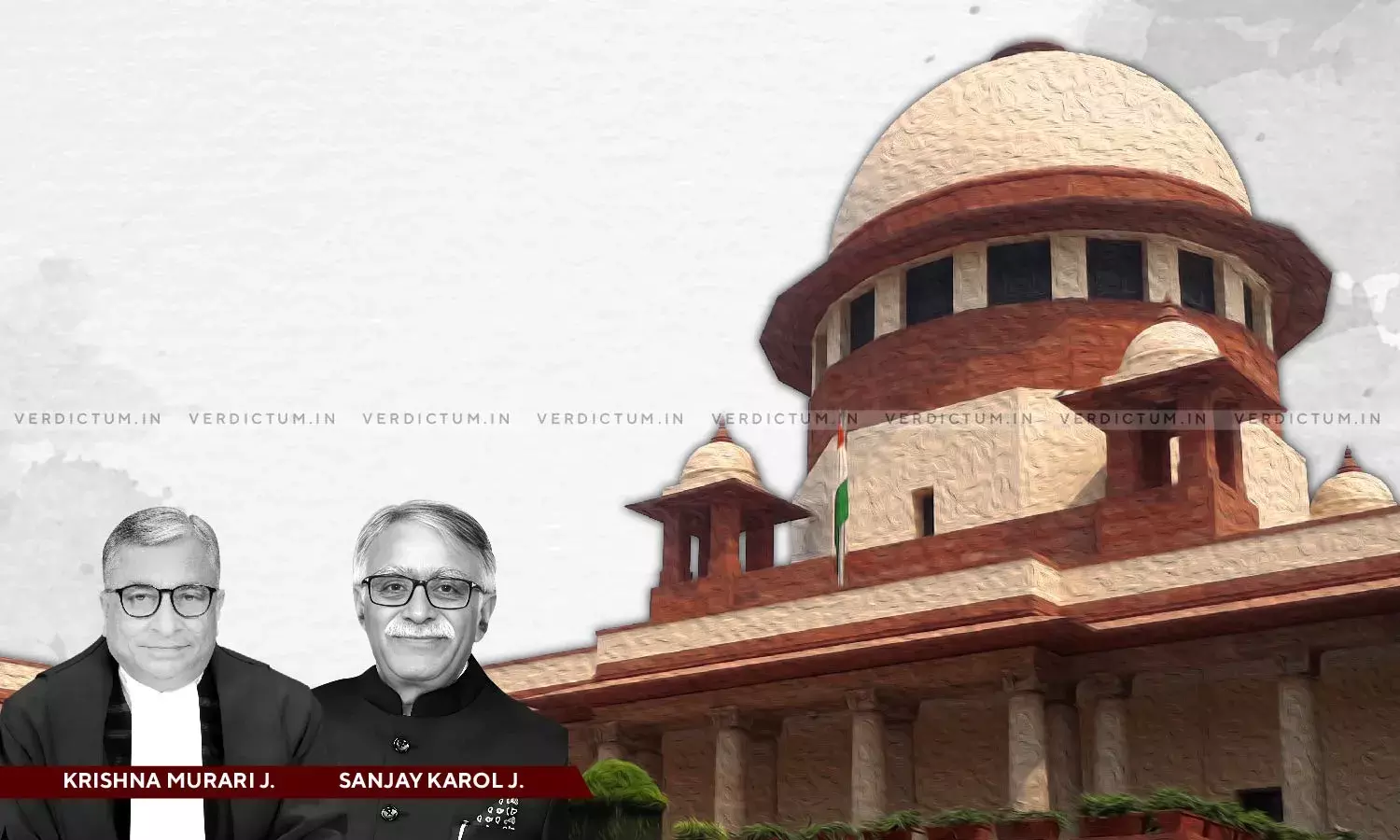Limitation Period Commences Only With Decree Becoming Enforceable & Capable Of Being Executed: SC Reiterates

The Supreme Court in an appeal has reiterated that the limitation period under the Limitation Act, 1963, would commence only with the decree becoming enforceable and capable of being executed.
The two-Judge Bench comprising Justice Krishna Murari and Justice Sanjay Karol held, “… the limitation period would commence only with the decree becoming enforceable and thus is capable of being executed. In the instant case, the relevant date from which the period of limitation will begin only with effect from 31.03.1994. The period of twelve years is computable from the said date, hence the Execution Application made on 17.07.1995 is within Limitation.”
The Bench noted in this matter that the cause of action to execute the compromise decree arose when the premises were taken away from the possession of the decree holders i.e., the respondents.
Advocate Pratibha Jain appeared on behalf of the appellant while Advocates Ashok Mathur and B. K. Satija appeared on behalf of the respondents.
In this case, an appeal was preferred by the appellant against the judgment passed by the Madhya Pradesh High Court. Such a decision was assailed on the ground that the execution application was filed after 12 years from the date of the decree and the same was, therefore, barred by time under the law.
It was prayed before the Apex Court that the Revisional Court was not justified in dismissing the revision petition. The question that arose for consideration was, “whether the date on which the compromise decree dated 26.04.1960 was entered into in Civil First Appeal No.11/1959 or the date when the final decree was passed by the Civil Court in Suit No. 30 A/87 i.e. 31.03.1994, will be considered for establishing the period of limitation under the Limitation Act, 1963 (hereinafter “the Act”) for instituting execution proceedings?”
The Supreme Court in the above context said, “… clause of the compromise decree clearly shows that during the pendency of the suit, the Appellant surrendered the land to the State Government. Notably, this compromise decree was entered into wherein it was specified that if due to such surrender the Respondents (Decree holders) were to lose possession of the land, then the Appellant (Judgement Debtor) would give 1 bigha and 5 biswas to the former.”
The Court observed that clause 6 of the compromise decree could not have been executed unless the Decree Holders were to lose their right of possession.
“… the cause of action would arise only on 31.03.1994. The prerequisite for enforceability of clause 6 is the dispossession of the defendants, de facto or de jure. … during the pendency of this appeal, the opportunity for compromise was given to the parties. But, no compromise could be arrived at”, noted the Court.
The Court asserted that the Courts below rightly held that the execution application was within the limitation and not barred by the time.
Accordingly, the Apex Court dismissed the appeal.
Cause Title- Shaifuddin (Dead) Thr. LRS. v. Kanhaiya Lal (Dead) Thr. LRS. & Ors.


